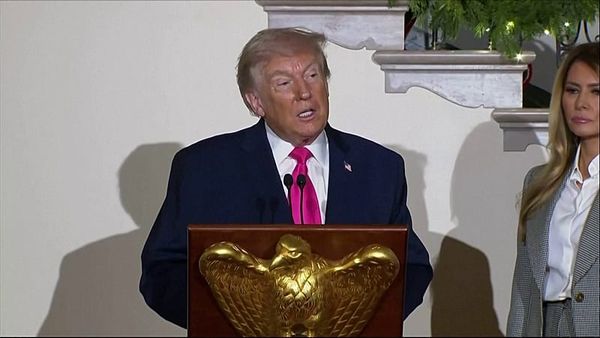
“Stomach bug,” “cruise-ship virus,” “winter vomiting disease”—all are nicknames for norovirus, the top cause of vomiting, diarrhea, and foodborne illness in the U.S. The contagious ailment typically circulates throughout the late fall, winter, and early spring, and the 2024–25 season is no exception. Nationwide test positivity was nearly 23% the week ended Dec. 28, compared to less than 11% six weeks earlier, according to the Centers for Disease Control and Prevention (CDC).
Up to 21 million people contract norovirus each year in the U.S. alone, the CDC says. Though most people recover from the gastrointestinal illness within three days, norovirus is annually responsible for 465,000 emergency department visits, mostly in young children; 109,000 hospitalizations; and 900 deaths, mostly among adults 65 and older. And unlike the other three illnesses that make up the ongoing “quad-demic”—flu, COVID, and respiratory syncytial virus (RSV)—norovirus has no FDA-approved vaccine.
Moderna, a Massachusetts-based pharmaceutical firm that sits at No. 37 on Fortune’s 2024 World’s Most Admired Companies list, is hoping to change that. The company is recruiting adult participants for Nova 301, its Phase 3 clinical trial evaluating an investigational norovirus vaccine called mRNA-1403. The first U.S. participant in the global, randomized controlled trial received their dose in September.
“Norovirus is a significant public health concern that affects millions of people worldwide each year, leading to severe symptoms and, in some cases, hospitalization,” Moderna CEO Stéphane Bancel said in a Sept. 30 news release. “By advancing our investigational norovirus vaccine into a pivotal Phase 3 trial, we are one step closer to potentially providing a new tool to prevent infection from this highly contagious virus, which places a significant burden on health systems globally.”
Why is norovirus vaccine development so tricky?
Moderna isn’t the first pharmaceutical company to develop a norovirus vaccine, nor is it the only one currently recruiting clinical trial participants. Chinese firm Anhui Zhifei Longcom Biologic Pharmacy Co., Ltd., for example, is seeking subjects for a pediatric norovirus vaccine trial. Moderna’s Dr. Doran Fink, clinical therapeutic area head for gastrointestinal and bacterial pathogens, sheds light on why an effective norovirus vaccine has proven elusive.
“There are a couple challenges. One is that it’s a disease that’s incredibly uncomfortable when you have it but for most people, it’s self-limited and short-lived,” Fink tells Fortune. “The focus on vaccine development has been on diseases that are causing a higher rate of hospitalizations and deaths. So it’s been, in part, a matter of priorities.
“But on the other hand, norovirus vaccine development has been challenging because there are many different genotypes of norovirus that have circulated over the years, and each genotype is protected by a specific immune response. It’s been difficult to find a vaccine antigen that would cover every single norovirus genotype.”
But Moderna aims to make waves with its messenger RNA vaccine technology, which you may be familiar with in terms of COVID immunity. Such vaccines tell your body how to make proteins that may help prevent some diseases.
“With [traditional] protein-based vaccines, the vaccines contain a protein that is typically produced by bacteria or yeast that are grown up in culture, and then the proteins are purified from that culture,” Fink explains. “That protein is injected into the muscle or the tissue just under the skin, where it comes into contact with immune cells that then create the response that provides protection. For the mRNA vaccines, we don’t have the protein.”
An ideal norovirus vaccine, Fink says, would not only cover at least 70% to 80% of currently circulating genotypes but also be versatile as genotypes evolve. Moderna is betting on mRNA technology to do just that. To Fink’s knowledge, none of its competitors has made it to Phase 3 of a clinical trial involving an mRNA norovirus vaccine.
View this interactive chart on Fortune.com
What is the Nova 301 clinical trial?
The goal of mRNA-1403 is to prevent norovirus in adults, and the trial will assess the vaccine’s safety, effectiveness, and immune response. Participants will be randomly assigned the investigational immunization—in the form of a single injection in the upper arm—or a placebo that doesn’t contain active ingredients. You can’t get norovirus from the vaccine.
Nova 301 began in September and is slated to run through May 2027, with each subject participating for about two years. Throughout the trial, participants will be required to complete at least six in-person visits to a trial site and six safety phone calls. They also must keep a log of side effects daily for the first week following their injection, then weekly for the remainder of the trial. If any norovirus-like symptoms such as vomiting or diarrhea arise, participants will be asked to resume daily entries and possibly provide a stool sample.
The trial is voluntary, meaning you can end your participation at any time for any reason. On the flip side, trial leaders may discontinue your involvement for a number of reasons, including your safety. Health insurance isn’t needed, and participants will be paid for trial-related time and travel.
Am I eligible for the Moderna norovirus vaccine trial?
Nova 301 seeks a total of 25,000 participants from around the world, including 20,000 people 60 and older, who are at higher risk of severe norovirus infection. The trial’s most basic requirements are that you’re at least 18 years old; in generally good health, with any chronic medical conditions well-controlled; and not pregnant or planning to become pregnant for at least three months after getting vaccinated.
Other exclusion criteria include immunodeficiency, poorly controlled chronic gastrointestinal disease, and planned surgical procedures within seven days before or 28 days after injection.
While Moderna offers a five-question online survey to determine your eligibility, you may want to first discuss your potential candidacy with your health care provider. If you have additional questions about your eligibility, contact the Moderna Clinical Trials Support Center at 877-777-7187 or clinicaltrials@modernatx.com.
For more on norovirus:
- Norovirus rates have skyrocketed by 340% this season. Here’s where the ‘winter vomiting disease’ is spreading and why
- Public health experts are warning of a ‘quad-demic’ this winter. Here’s where flu, COVID, RSV, and norovirus are spreading
- Norovirus causes up to 21 million illnesses in the U.S. every year. Here’s what to know about the contagious disease that hand sanitizer can’t kill
- Norovirus is surging in the U.S. What you need to know, from length of symptoms to protecting yourself







